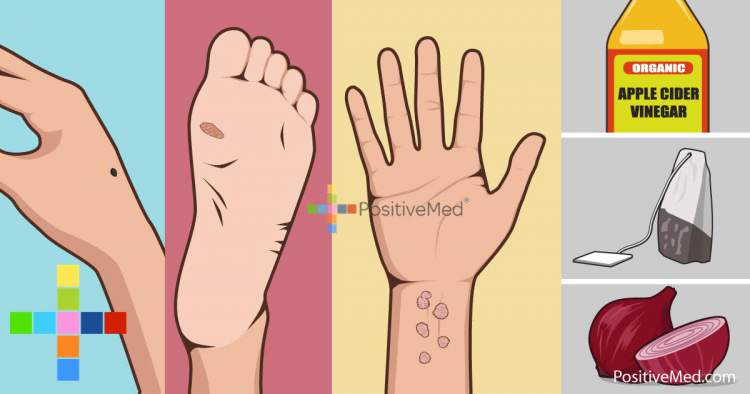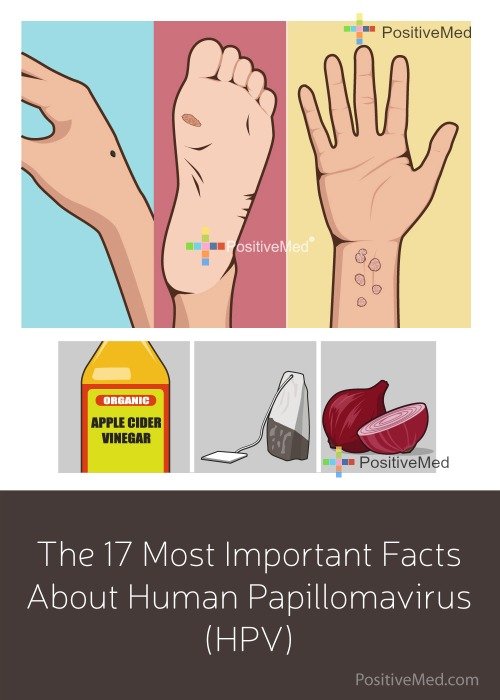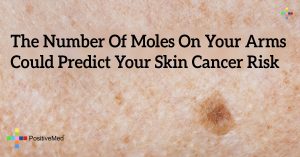The human papillomavirus is one of the most common STIs. According to the U.S. Centers for Disease Control and Prevention, roughly 80% of all women and 50% of all men will have the virus by the time that they are 70. Knowing about Human Papillomavirus (HPV) prevention and detection can help you to minimize the dangerous symptoms of HPV.

1. HPV is not just one virus. It is a group of over 170 different viruses.
2. All genders can get HPV. Though HPV is often associated with women, it can also affect men.
3. Almost everyone has HPV. It is an extremely common condition that is easily spread.
4. HPV mostly affects the genital area, but warts can also develop in the throat. These warts can cause hoarseness, breathing issues, and constant coughing.
5. HPV can cause cancer in places besides the cervix. Unfortunately, HPV can result in throat, oral, and anal cancer.
RELATED ARTICLE: 7 Warning Signs of Cervical Cancer that Women Often Ignore!
6. Oral hygiene lessens the risk of HPV. People who do not regularly brush their teeth and have gum diseases are more likely to get HPV.
7. HPV is not only spread through honey pot interc*urse, so abstinence is not always an effective way of preventing the spread of HPV. It can also be caused by oral or anal interc*urse.
8. Only certain types of HPV cause cancer. The types of HPV that result in visible genital warts are not the forms of HPV that cause cancer to develop.
9. You can develop HPV symptoms years after getting it. If you suddenly start showing symptoms of HPV, it may be difficult to know when you contracted the virus.
10. Condoms do not fully protect against HPV. They lower your chances of getting it, but HPV can still be spread even with condom usage.
11. There are vaccines to protect against Human Papillomavirus (HPV). Both Gardasil and Cervarix can help to protect against certain forms of HPV.
12. Even if you are vaccinated, you should still get pap smears. While HPV vaccines protect against some types of cervical cancer, they do not prevent all of them. It is still important to get regular Pap smears to check for cervical cancer.
13. There are HPV vaccines for men too. Gardasil is also effective for boys between the ages of 11 and 12. This protects them from the virus later on in life.
14. Women are more likely to spread HPV. Though researchers are not sure of why this happens, the risk of being infected by HPV is much higher if the infected partner is female.
RELATED ARTICLE: What You Should Know About Sexually Transmitted Infections (STIs)
15. Your risk of getting cancer is increased if you smoke. Smoking can weaken your immune system and make HPV-related cancer more likely.
16. HPV vaccines are more effective at a younger age. Since the vaccine does not treat HPV, it is better to get it before you become physically active.
17. Even one dose of the HPV vaccine is beneficial. Though three doses of the vaccine offer the most protection, just one greatly reduces your risk.
By knowing the facts about HPV, you can protect yourself and your partners. If you do have HPV, regular tests can help to identify issues before they worsen into cancer, and it is possible to treat HPV symptoms. Ultimately, getting the vaccine at an early age is the best way to avoid the dangers of HPV.
Pin It!

An Important Note About HPV Vaccines:
Vaccines have their own advantages and disadvantages. Some of them are great examples of our progress within the last 200 years in fight against fatal bacterial and viral infections; And some are simple not that beneficial.
In 1983, the American child vaccine schedule was comprised of 10 injections. Now you’ll find that number of vaccines has risen to 38, including HPV vaccines. Nobody wants their child go through cervical cancer, yeah? But that’s not the only thing that’s risen. Child illness and neurological damage rates have also skyrocketed. Is it a coincidence? We don’t know yet!
Has this vaccine really been tested enough to use on our children?
“Studies from several countries show that 80-95% of doctors regularly see drug company representatives despite evidence that their information is overly positive and prescribing habits are less appropriate as a result. Many doctors receive multiple gifts from drug companies every year, and most doctors deny their influence despite considerable evidence to the contrary.”
Source: https://www.ncbi.nlm.nih.gov/pmc/articles/PMC1126053/#ref15






